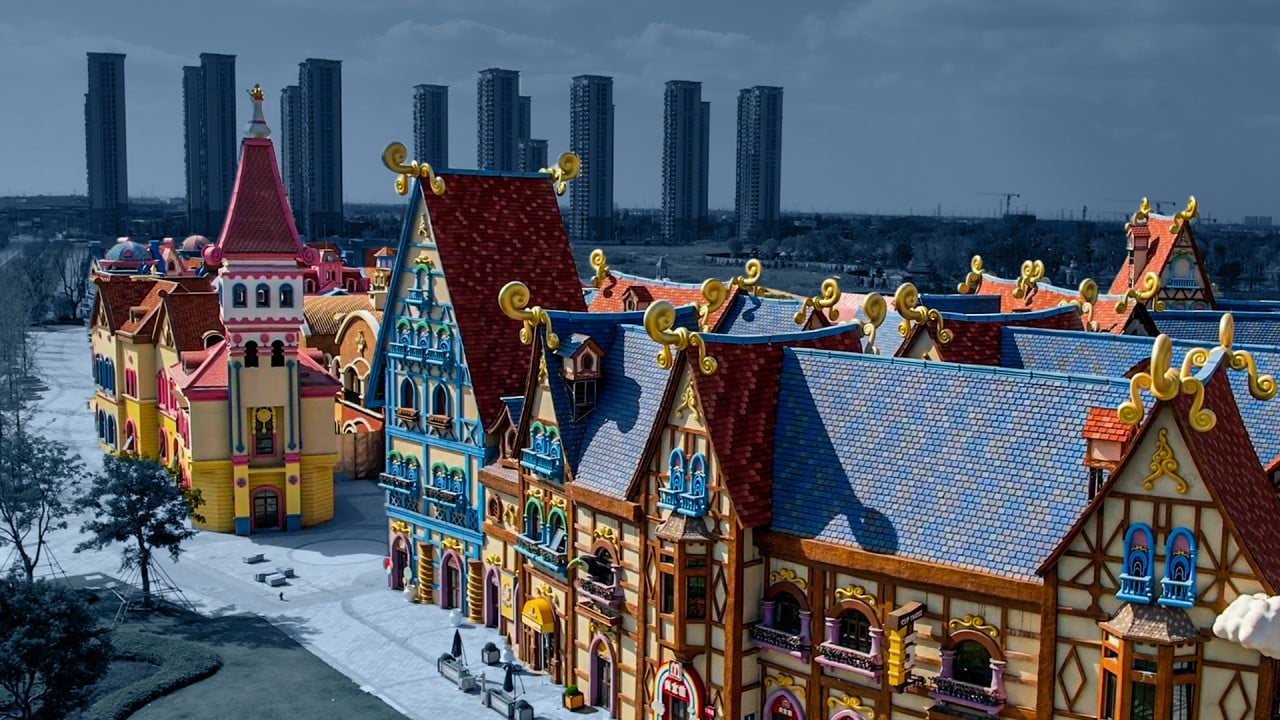
Hong Kong-listed shares of Evergrande units stabilise as liquidation seen unshackling business, assets from debt crisis
- Evergrande New Energy Vehicle Group and Evergrande Property Services resumed trading after a sudden halt on Monday
- Shares in the parent remain suspended as two court-appointed liquidators took control of the insolvent mainland developer
Carmaker Evergrande New Energy Vehicle Group advanced 4.4 per cent to HK$0.239 at in Hong Kong on Tuesday, while Evergrande Property Services jumped as much as 9 per cent before losing 3.8 per cent at HK$0.375. The stock lost 18 per cent and 2.5 per cent, respectively on Monday.
Trading in China Evergrande Group remained suspended after the stock sank 21 per cent on Monday, the company said in an exchange filing.
The High Court in Hong Kong ordered the Chinese developer to be wound up at a hearing, after it failed to repay a creditor and show progress to reorganise its debt. Eddie Middleton and Tiffany Wong from Alvarez & Marsal have been appointed as joint liquidators to take control of its operations.
The liquidation effectively killed the debt restructuring scheme agreed with a group of creditors in March last year, which included issuing new debt instruments that could be converted into shares in the two subsidiaries. This would have eliminated the risk of stock dilution to minority shareholders, analysts said.
Why offshore creditors will remain nervous about Evergrande liquidation
“It’s possible that minority shareholders of the two subsidiaries will not see further value dilution if convertible bonds are no longer issued,” said Jeff Zhang, an analyst at Morningstar. “However, Evergrande may still pursue restructuring following the liquidation order, so risk remains if similar options are offered to creditors.”
China Evergrande owns 58.6 per cent of the NEV unit and 51.7 per cent of the property management unit, according to its most-recent debt workout plan with offshore creditors.
The demise of China Evergrande has erased as much as HK$1.12 trillion (US$143 billion) of market value after they plunged from their all-time highs, including HK$392 billion in the flagship founded in 1996 by former chairman Hui Ka-yan in Guangzhou in southern Guangdong province.
“Liquidation or debt restructuring for any developer could be complex, and visibility remains low on the compensation that offshore creditors eventually receive,” Zhang said.


